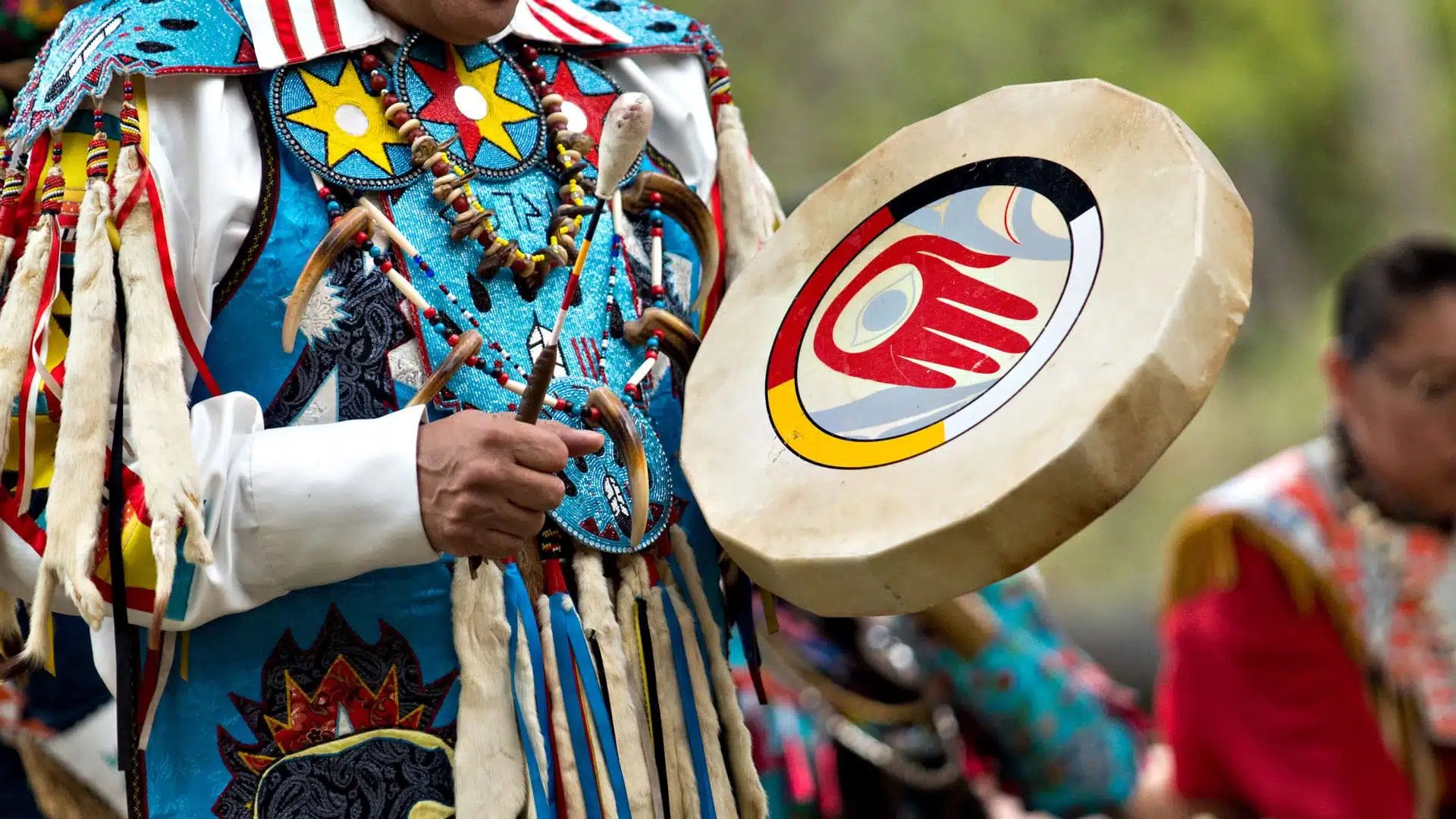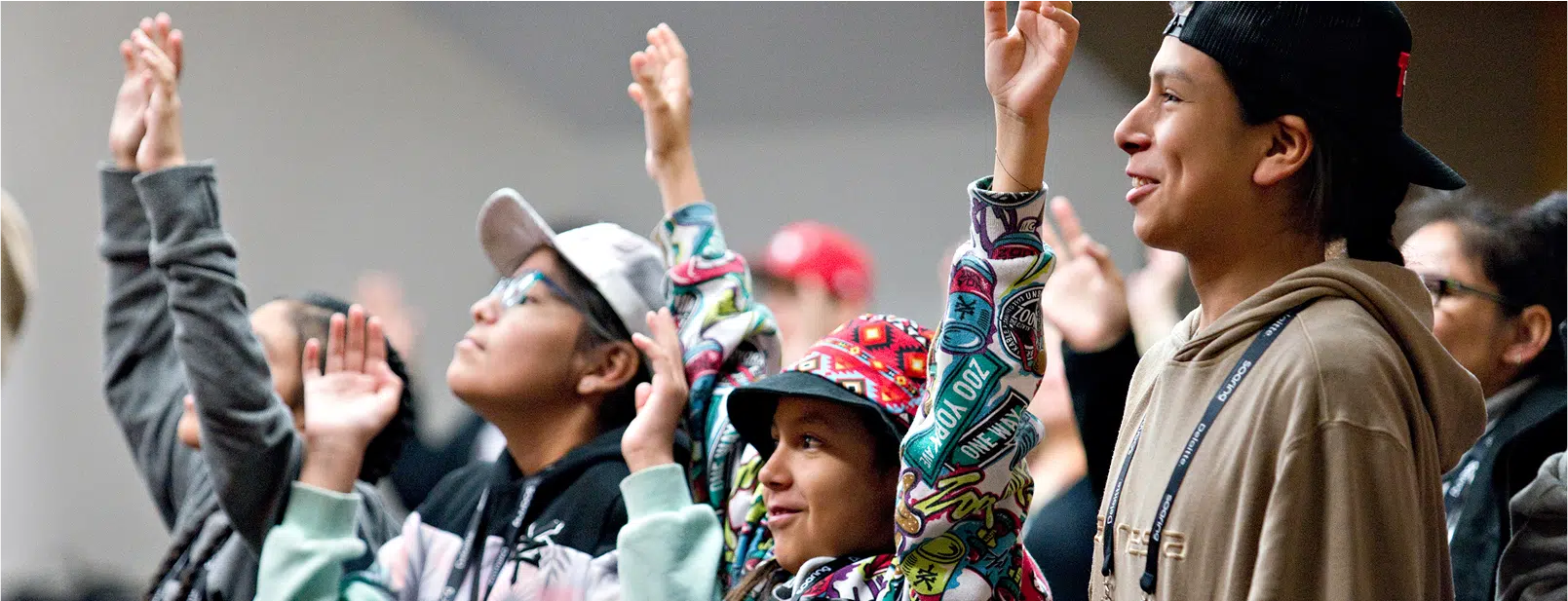For new First Nations, Inuit, and Métis post-secondary students in Canada, moving to a new city for education can be an exciting yet challenging experience. While adapting to a new environment, it’s essential to find spaces that embrace and honour Indigenous culture and heritage. In this article, we will explore easy tips for finding Indigenous spaces in new cities, helping you maintain a connection to your cultural identity and fostering a sense of belonging.
Research local Indigenous organizations
Start by researching local Indigenous organizations in your new city. These organizations often serve as cultural hubs, offering resources, programs, and events that celebrate and support Indigenous communities. Look for Friendship Centres, Métis Nation offices, Inuit cultural centres, or organizations dedicated to supporting specific First Nations groups. Reach out to these organizations to learn more about their services and activities.
Connect with Indigenous student groups
Many post-secondary institutions have Indigenous student groups or Indigenous student centres. These groups provide a welcoming and inclusive space for Indigenous students to connect, share experiences, and support one another. Joining these groups can help you build a network of peers who understand and appreciate your cultural background. Participate in their events, workshops, and cultural activities to stay connected to your Indigenous roots.
Attend cultural events and powwows
Keep an eye out for local cultural events and powwows happening in your new city. These gatherings showcase Indigenous traditions, music, dance, and art. Attending these events not only provides an opportunity to experience and celebrate Indigenous culture, but also allows you to connect with other Indigenous individuals and build relationships within the community.
Explore Indigenous art galleries and museums
Seek out Indigenous art galleries and museums in your new city. These spaces often feature exhibitions that highlight Indigenous artwork, historical artifacts, and cultural narratives. Visiting these galleries and museums can deepen your understanding of Indigenous history, traditions, and contemporary artistic expressions.
Engage with local Elders and Knowledge Keepers
Seek opportunities to connect with local Elders and Knowledge Keepers in your new city. Elders hold invaluable wisdom, cultural knowledge, and guidance. They can provide insights into local Indigenous traditions, stories, and teachings. Attend community gatherings, workshops, or events where Elders are present, and respectfully engage with them to learn from their experiences.
Volunteer with Indigenous organizations
Consider volunteering with local Indigenous organizations or community initiatives. This allows you to actively contribute to the betterment of Indigenous communities and build meaningful connections. Volunteer opportunities may range from cultural events and workshops to youth mentorship programs. By giving back, you can develop relationships, gain valuable experiences, and make a positive impact.
Seek out Indigenous-friendly businesses and spaces
Look for Indigenous-friendly businesses and spaces in your new city. These can include Indigenous-owned shops, restaurants, or cafes that embrace and showcase Indigenous culture. Supporting these businesses not only connects you to your cultural heritage but also contributes to the local Indigenous economy.
Engage with Indigenous initiatives on campus
Explore Indigenous initiatives on your campus. Many institutions have Indigenous-specific programs, events, and resources available to students. Attend Indigenous guest lectures, cultural workshops, or academic discussions. Take advantage of opportunities to engage with Indigenous faculty members or connect with Indigenous student support services.
Reach out to local Indigenous communities
Take the initiative to reach out to local Indigenous communities near your new city. Attend community gatherings, powwows, or cultural festivals hosted by nearby First Nations, Inuit, or Métis organizations. Engage respectfully and express your desire to learn and connect. Building relationships with local Indigenous communities can provide a sense of belonging and open doors to cultural experiences.
Utilize online platforms and social media
Leverage online platforms and social media to find Indigenous spaces and connect with like-minded individuals. Join online groups, forums, or social media communities specifically focused on Indigenous culture and community in your new city. These virtual spaces can provide a platform for sharing resources, engaging in discussions, and connecting with other Indigenous individuals. Follow local Indigenous organizations, artists, and activists on social media to stay updated on events, initiatives, and opportunities to connect.
Remember, finding Indigenous spaces in your new city is a personal journey that may take time and exploration. Be proactive in seeking out these spaces and engage with them in a respectful and meaningful way. By actively participating in Indigenous spaces, you can maintain a strong connection to your cultural identity, build a supportive community, and navigate your learning journey with a sense of pride and belonging.
As you embark on this journey, remember that your Indigenous heritage is a source of strength and resilience. Embrace the opportunity to share your culture, learn from others, and contribute to the diverse fabric of your new city. By finding Indigenous spaces, you can enrich your university experience, foster connections, and contribute to the preservation and celebration of Indigenous culture in your new community.


